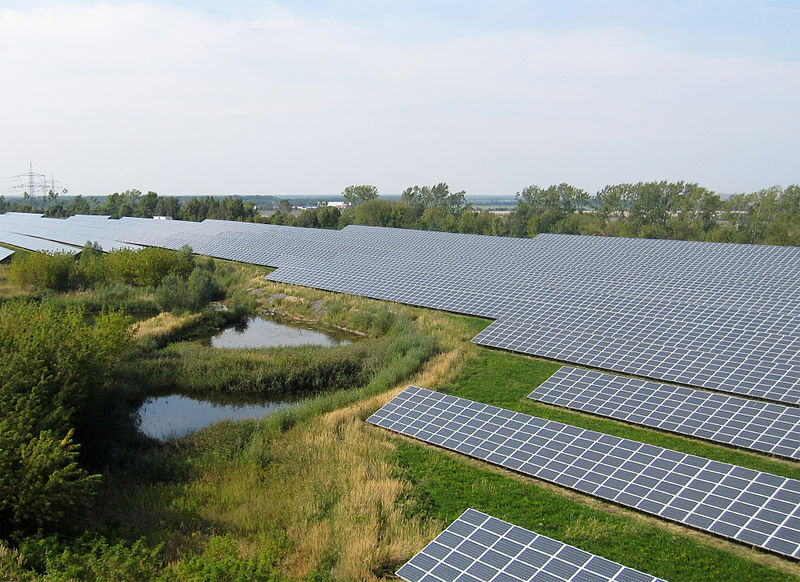South Korean firm Hanwha Q Cells’ German subsidiary Hanwha Q Cells GmbH has signed a 25 MW module repowering supply deal with fellow German company Adler Solar.
The agreement will see Adler Solar repower older solar PV systems that may be suffering from yield loss with Hanwha Q Cells’ Q.Plus solar modules, which boast integrated Q.ANTUM cell technology, and thus offer higher efficiency and therefore higher power output.
The process of repowering older solar PV plants is a growing source of revenue in Germany, which was one of the world’s first movers in large-scale solar installations. Adler Solar specializes in restoring the nominal power of a PV system that has succumbed to decreased yield, thereby improving energy harvest and, in turn, the system owner’s ROI.
The long-term partnership between the two firms could increase to 30 MW of modules, with Adler Solar already active in repowering a growing number of commercial and industrial rooftop solar systems in Germany, in order to maximize existing FITs for system owners.
By using higher efficiency modules such as Hanwha Q Cells’ Q.Plus module, Adler Solar says that it is future-proofing the arrays from further recurrence of profit and power loss.
“The repowering method is an extremely attractive solution for PV system operators, banks or investors alike, whose solar system shows a progressive degradation,” said Adler Solar’s head of repowering, Michael Reck. “Repowering clients expect continuous high quality standards: starting with the concept, through the components used, all the way to the implementation of the appropriate measures.”
Hanwha Q Cells GmbH key account manager Marko Schweitzer added that the large number of solar systems that instantly benefit from repowering is proof that investment in high quality modules is a worthwhile pursuit.
Last month, Adler Solar successfully repowered two PV installations totalling 5.3 MW in Germany’s Brandenburg and Mecklenburg-Vorpommern regions, registering a 21% performance increase in both plants.
This content is protected by copyright and may not be reused. If you want to cooperate with us and would like to reuse some of our content, please contact: editors@pv-magazine.com.



By submitting this form you agree to pv magazine using your data for the purposes of publishing your comment.
Your personal data will only be disclosed or otherwise transmitted to third parties for the purposes of spam filtering or if this is necessary for technical maintenance of the website. Any other transfer to third parties will not take place unless this is justified on the basis of applicable data protection regulations or if pv magazine is legally obliged to do so.
You may revoke this consent at any time with effect for the future, in which case your personal data will be deleted immediately. Otherwise, your data will be deleted if pv magazine has processed your request or the purpose of data storage is fulfilled.
Further information on data privacy can be found in our Data Protection Policy.